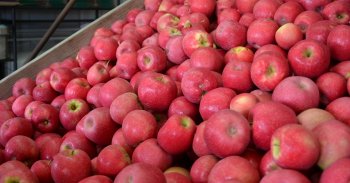
The food-grade wax used on apples in Australia is approved for human consumption and is used in many other edible products including confectionery and other fruits. Wax is primarily used to keep apples shiny, but may also help to increase the shelf life of apples.
In response to consumer interest in apples with no added wax, Woolworths has decided to sell its new season apples with no added wax from February 2017 while Coles will extend its offer of apples with no added wax nationally from January 2017 following trials in Western Australia, South Australia and the Northern Territory.
“Some Australian apple growers see value in waxing their apples, while some are happy to supply ‘no added wax’ apples. We represent all growers and this diversity of opinion,” says Philip Turnbull, CEO of Apple and Pear Australia Ltd (APAL). “However, if the major retailers’ move to apples with no added wax means people eat more apples, then, overall, it could be good for the industry.”
Apples with no added wax have always been available in many retail outlets and farmers markets. Organic apples don’t have added wax by definition and many pre-packed apples – apples sold in bags – also don’t have added wax.
“As Woolworths and Coles change to selling more apples with no added wax it may mean changes for growers who may have invested in waxing equipment and the wax itself. It may also complicate their packing lines if they need to wax some apples and not others,” Turnbull says. “However, we are happy when retailers look at finding new ways to excite consumers about apples and encourage apple consumption. We hope Woolworths’ and Coles’ decision to stock apples with no added wax helps to highlight that apples are a delicious and nutritious natural snack.”
Apples with no added wax may appear less shiny, but APAL suggests that they should still taste just as great and have a great crunch.
Source: APAL



 Classifieds
Classifieds

